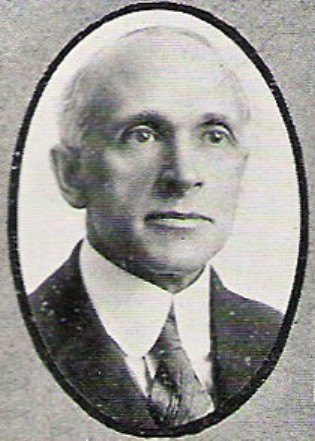Charles R. Keyes
| Charles R. Keyes | |
|---|---|

1920 Yearbook Photo
|
|
| Born | Charles Reuben Keyes May 5, 1871 Mount Vernon, Iowa, U.S. |
| Died | July 23, 1951 (aged 80) Mount Vernon, Iowa, United States |
| Residence | Mount Vernon, Iowa |
| Nationality | American |
| Fields | Archaeology |
| Institutions | University of California, Berkeley, Cornell College |
| Alma mater | Cornell College, Harvard University |
| Known for | first descriptions of the Mississippian culture |
| Spouse | Sarah Mary Nauman |
| Children | Catherine Keyes, Margaret Naumann Keyes |
Charles Reuben Keyes (May 5, 1871 – July 23, 1951) was a pioneering American archaeologist and linguist based in Iowa, known as the founder of modern Iowa archaeology. He is, with Ellison Orr (1857-1951), considered a key person to gaining protection for the Effigy Mounds National Monument, established by Congress in 1949 to protect hundreds of prehistoric earthworks built by indigenous Native American cultures.
Keyes is known as the first American researcher to describe the Mississippian culture, the last great moundbuilding culture. Many of its major earthworks had been drawn and recorded in the late 19th century by researchers for the Smithsonian Institution, but he also used evidence from artifacts to describe its culture. In support of regional research, Keyes organized the Iowa Archaeological Survey in 1922 and encouraged founding in 1951 of the Iowa Archeological Society.
Charles Reuben Keyes was born on 5 May 1871 in Mount Vernon, Iowa to Marsden and Martha Keyes. Among his ancestors was Edmund Rice, an English immigrant to Massachusetts Bay Colony.
Keyes attended Cornell College in Mount Vernon, Iowa. He attended Harvard University for his Ph.D. in German.
Keyes returned to Iowa to teach German at Cornell College in Mount Vernon. He was a professor there for his entire career. He retired in 1941.
While his early work dealt with linguistics, by the 1920s Keyes focused his research almost exclusively on sites and artifacts in Iowa. He is considered the founder of Iowa archeology.
Keyes organized the Iowa Archaeological Survey in 1922 and led it with Ellison Orr until their deaths in 1951. They recorded thousands of sites and conducted hundreds of excavations. Together they helped create the modern theoretical and temporal framework for prehistoric Midwestern archaeology. Keyes was among the first scholars to describe what is now known as the Mississippian culture, which reached its peak after 1000CE. The people of this culture had centers throughout the Mississippi Valley and its tributaries, including the Ohio, from the upper Midwest to the Southeast. Its major chiefdom was at Cahokia, in present-day Illinois. In the late 19th century, researchers for the Smithsonian Institution had recorded mounds at Cahokia and elsewhere in the Midwest.
...
Wikipedia
